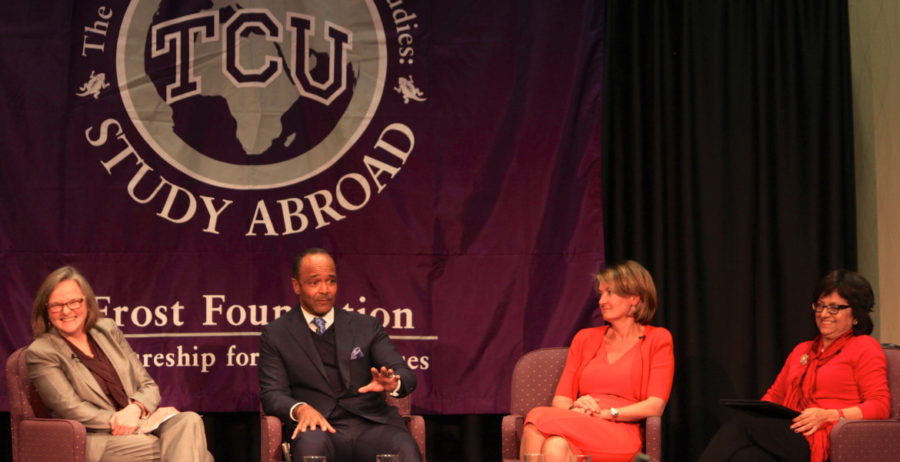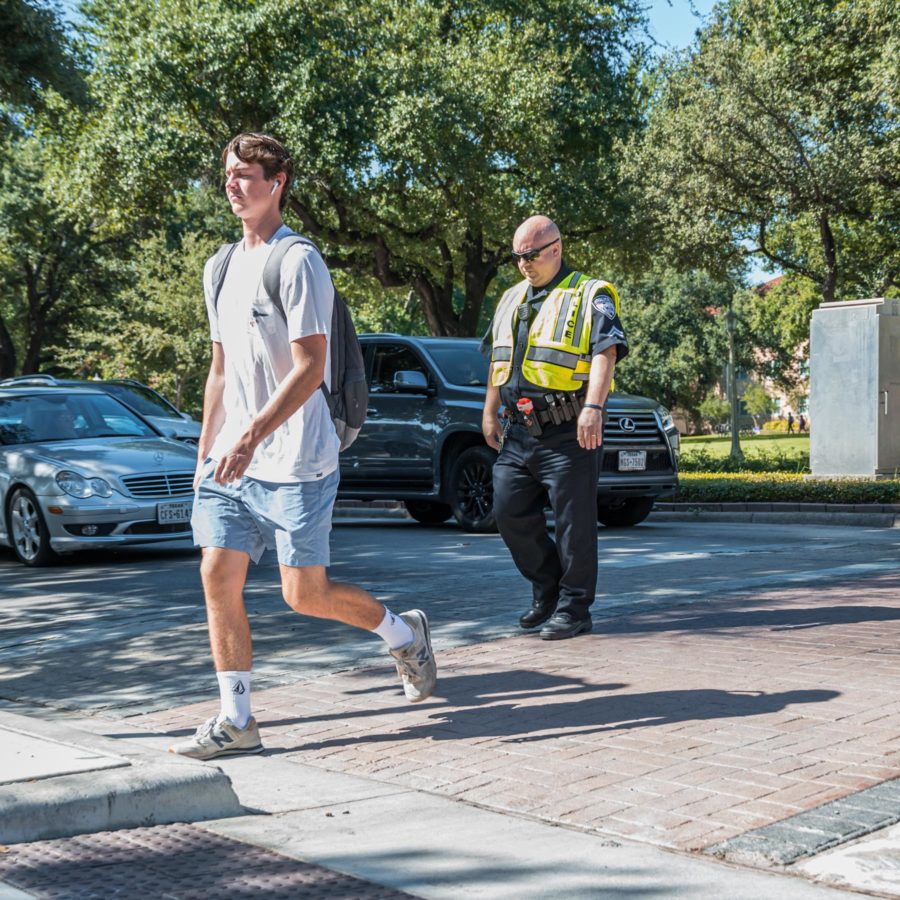Two decades later, Rwanda, Africa, is still healing from a three-month genocide in 1994 – when members of the Hutu ethnic majority massacred close to 1 million Tutsi.
This week, three attorneys who helped in the early recovery spoke at TCU: Sara Darehshori, senior counsel for the U.S. Program in Human Rights Watch; Ambassador Pierre Prosper, a partner at the Washington, D.C., law firm Arent Fox; and Lisa Pruitt, a law professor at the University of California.
They successfully prosecuted the first case of rape as a war crime following the genocide in Rwanda. On Thursday, they talked about their experiences and the changing societal view of rape.
The discussion — hosted by The Frost Foundation Lectureship for Global Issues and the Center for International Studies: TCU Abroad — focused on the aftermath of the genocide and what the TCU community could take away from the lawyers’ experiences.
“What we saw in Rwanda was it was not about the individual — it was a collective,” Prosper said. “And they gathered strength among themselves and were able to create a movement and able to push and promote change, which was critical.”
The slaughter of the Tutsi left emotional scars that proved far more devastating than physical scars, Darehshori said.
Between 100,000 and 250,000 women were raped during the genocide, according to the UN Action Against Sexual Violence in Conflict. In some cases, men with a known HIV positive status raped women with the purpose of infecting them.
Rape has been a war crime since 1919, but until the genocide in Rwanda, it was never prosecuted.
“For the longest time, rape and sexual violence was viewed as a lesser crime,” Prosper said.
Darehshori added, “It was classified as theft in the fourth category of crimes.”
In 1997, the attorneys won the first conviction of rape as a war crime against Jean-Paul Akayesu, a former Rwandan mayor.
In addition to the 1 million people killed in the genocide, Prosper said another 2 million fled the country. TCU student Pacifique Rutamu was among the many children to lose family in the violence.
“Growing up in Rwanda without one or two parents was an issue shared by many kids, so it wasn’t like I felt alone in this sadness,” said Rutamu, whose father was killed in the genocide.
Rutamu also spoke of the lessons he learned from living through the genocide.
“It becomes your engine to function and do well and make sure you don’t waste your time where you are – to grab every single opportunity you have,” he said. “And make sure you contribute to not having genocide happen again in your own country.”




